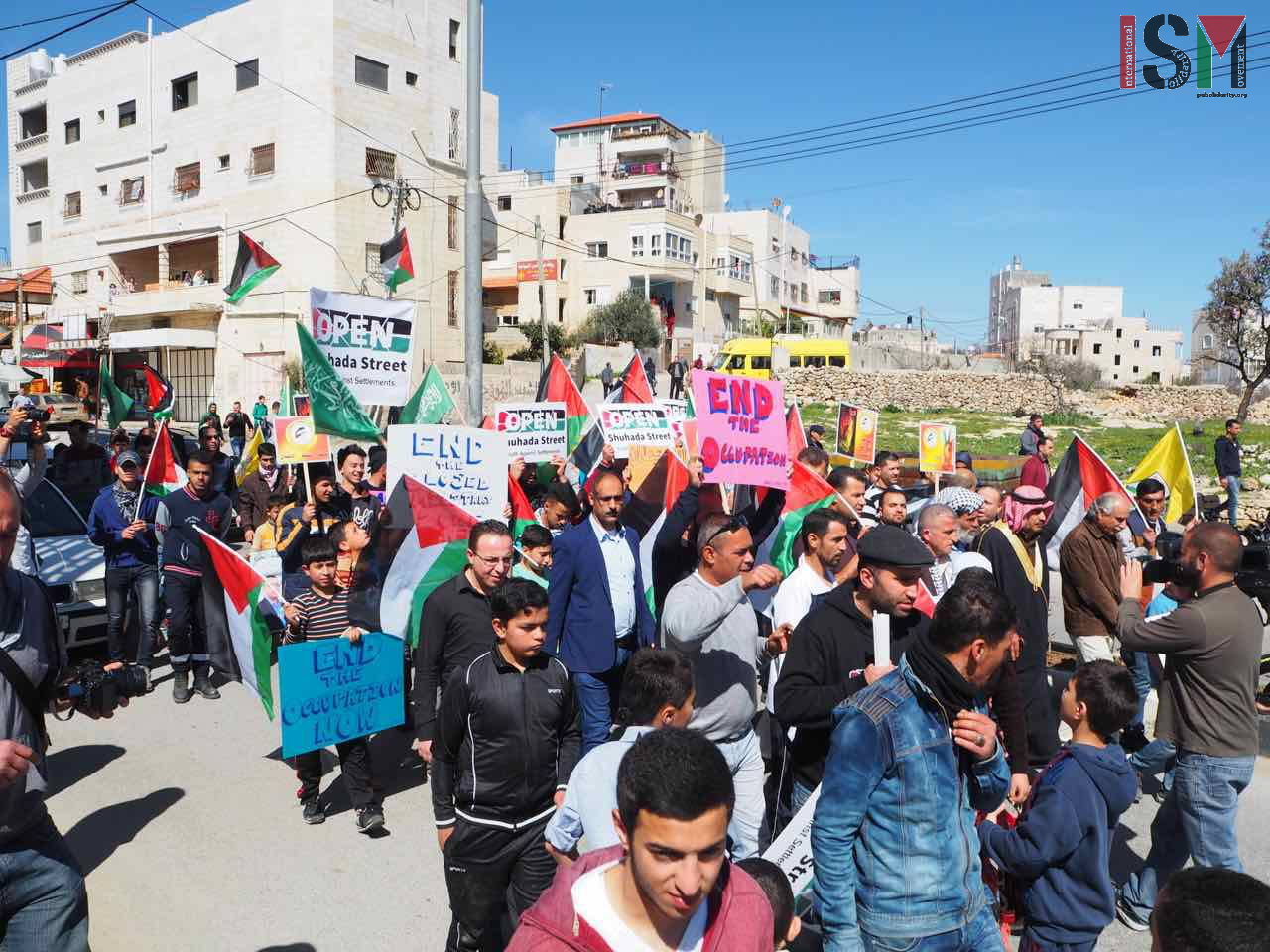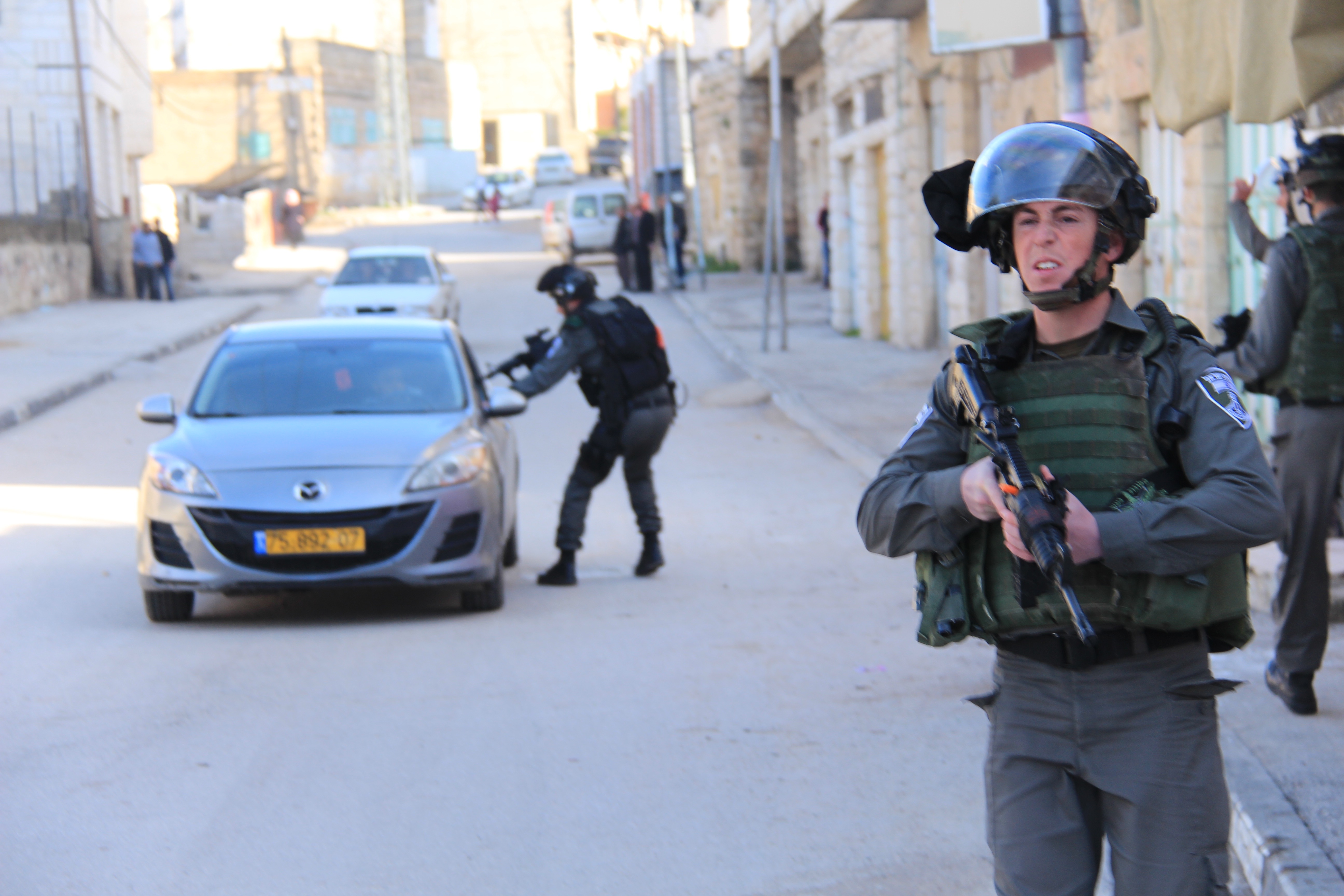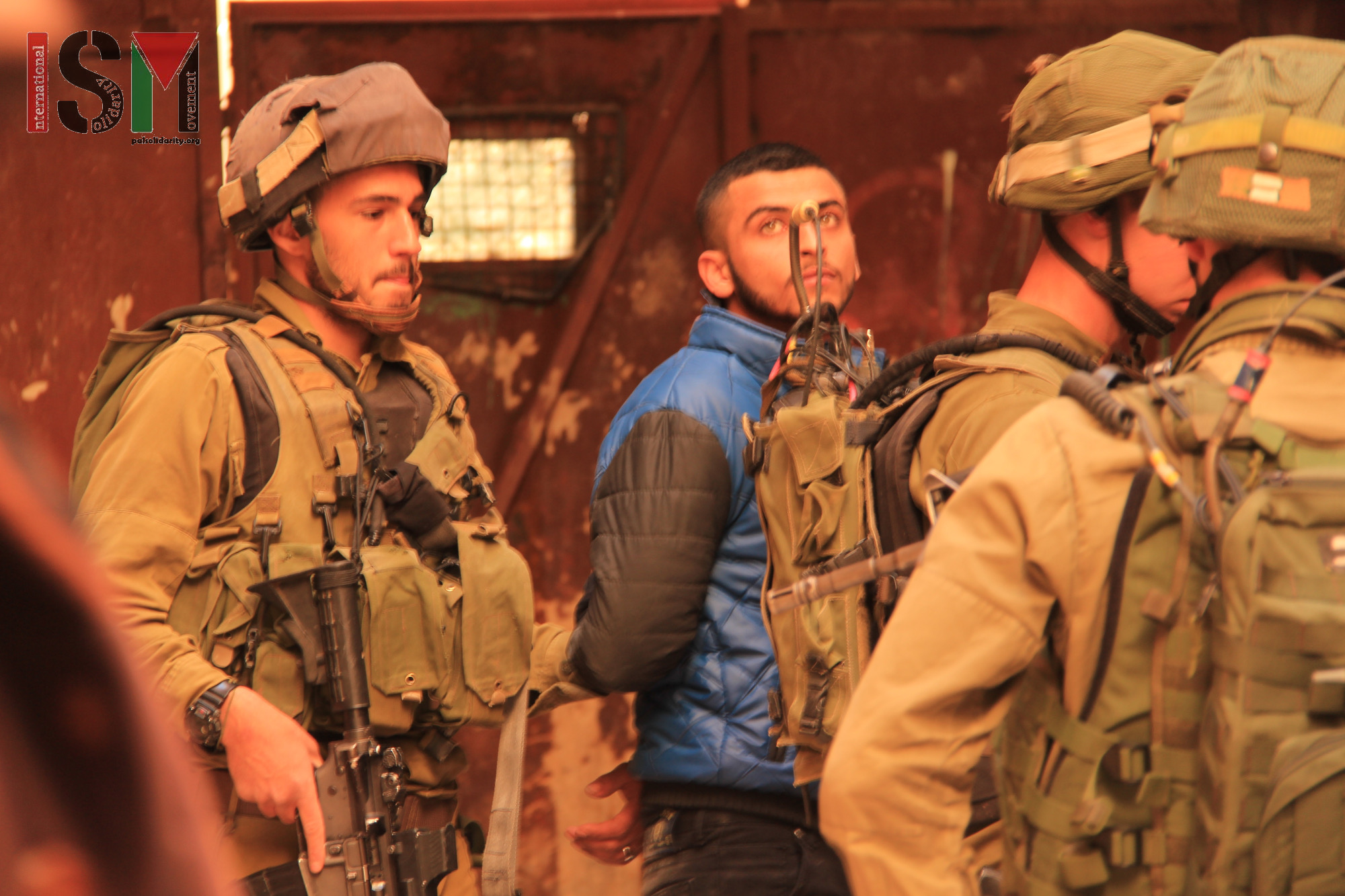Tag: Israeli Army
-
Demonstrators call for end to unjust restrictions in Hebron 22 years after Ibrahimi mosque massacre
26th February 2016 | International Solidarity Movement, al-Khalil team | Hebron, occupied Palestine On 26th February 2016, Palestinians in occupied al-Khalil (Hebron) jointly commemorated the Ibrahimi Mosque massacre and protested against the closure of Shuhada Street and the illegal Israeli military occupation. The peaceful demonstration, organised by the local activist group Youth Against Settlements as…
-
Palestinian school children tear gassed by shameful Israeli forces
26th February 2015 | International Solidarity Movement, Al-Khalil team | Hebron, occupied Palestine Salaymeh checkpoint in occupied Al-Khalil (Hebron) is notorious for Israeli forces using live ammunition, tear gas and stun grenades to willfully wound, frighten, intimidate and demoralize Palestinan school children on a daily basis. In one of the most grotesque examples of this…
-
Israeli forces continue policy of arbitrary and violent arrests in Hebron’s Old City
25th February 2016 | International Solidarity Movement, al-Khalil team | Hebron, occupied Palestine On 25th February 2016, Israeli forces violently arrested two Palestinian men in the souq, the Palestinian market, in occupied al-Khalil (Hebron). Both of them were arbitrarily arrested and finally allowed to leave only after residents intervened. Israeli forces entered a Palestinian house…



